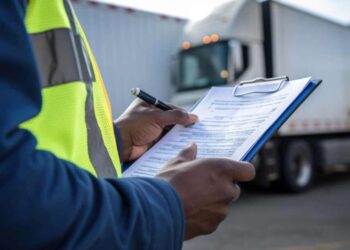So, you have been named an executor of a will. This is a great honor and shows that the deceased placed their trust in you to handle their posthumous affairs. That said, the role also comes with heavy responsibility. If this is your first time being an executor, it is natural to feel nervous about the gravity of your duties. This article can help clarify your next steps.
What is an Executor?
An executor is the individual named in a will to administrate the estate of the deceased. Your primary role is to make sure that the deceased’s assets are dispersed according to their wishes and that any debts or taxes are paid. This involves a variety of tasks, which can range from simple paperwork to complicated legal procedures.
Top Tip: Seek Professional Assistance
Before you begin fulfilling your duties as an executor, consider consulting a lawyer for executors. Probate laws vary by state, and an attorney can provide important advice and guidance to comply with your local regulations. Additionally, a lawyer can help with drafting required legal documents and representing the estate in court if any disputes arise.
Aside from an attorney, you may also need the services of other professionals, such as accountants, appraisers, or real estate agents. An accountant can help with filing final income tax returns for the deceased, while an appraiser and real estate agent can provide accurate valuations of property and other assets.
1. Important Documents
The first document you need is the death certificate. This is a vital document that you will need for many steps in the estate distribution process, including probate, dealing with banks, and managing other assets. Obtaining multiple authenticated copies of the death certificate is a good idea as you will need to provide them to various entities.
Next, you will need to locate the most recent original will and any other important documents the deceased left behind. The will outlines the deceased’s wishes regarding asset distribution, funeral arrangements, and other important matters. It may be stored in a safe place at home, with a lawyer, or in a safety deposit box in a bank.
Once you have the will, carefully read it to understand the deceased’s wishes. Take note of any specific instructions or bequests. This is also a good time to look for any letters of instruction or informal documents the deceased might have left to provide additional context or guidance so that you can follow their wishes as closely as possible.
2. The Probate Process
Probate is the legal process through which a will is ratified and the deceased’s assets are distributed. The process begins with filing the will with the probate court in the county where the deceased lived. This often involves submitting a formal petition along with the death certificate and the will. With smaller estates, this process may be simpler.
Once the probate process is initiated, you will need to notify beneficiaries, heirs, and creditors. This is usually done through a formal notice process, which might involve publishing a notice in a local newspaper and sending written notices. This step is important to allow creditors to make claims against the estate and to keep beneficiaries duly informed.
Next, you will need to make a detailed inventory of the deceased’s assets. This can include real estate, bank accounts, investments, personal property, and any debts. The inventory must be submitted to the probate court. This is where professional appraisals will come in, as you will need to determine the market value of certain assets, such as family heirlooms or real estate.
3. Managing and Distributing Assets
While the estate is in probate, it is your job to manage and protect the assets. This could include maintaining property, managing investments, and handling day-to-day expenses. You must settle any outstanding debts and taxes owed by the estate before any distributions can occur, and you may have to sell assets if necessary to raise the required funds.
Be sure to keep detailed records of all transactions. You have a fiduciary duty to act in the best interests of the estate and its beneficiaries. This means you must avoid conflicts of interest and cannot use any estate assets for personal benefit. Once debts and taxes are paid, you can distribute the remaining assets to the beneficiaries as specified in the will.
4. Anticipating Challenges
Sometimes, beneficiaries may dispute the will or challenge how assets are being handled. A lawyer can help you to address these disputes promptly and professionally. Beneficiary disputes can arise for various reasons, such as perceived unfairness in the distribution of assets or disagreements about the valuation of certain assets.
Handling these disputes with transparency and sensitivity can help maintain family relationships and ensure the smooth administration of the estate. It is important to maintain detailed records of all your actions as an executor. Ensure that each distribution is documented to protect yourself in case of any legal issues.
5. Final Steps
Once the assets have been distributed, you can close the estate by filing a final accounting record with the probate court. The court will review the record to ensure that everything has been handled properly. After receiving approval from the court, you will be officially released from your duties as an executor. Pat yourself on the back for a job well done!










